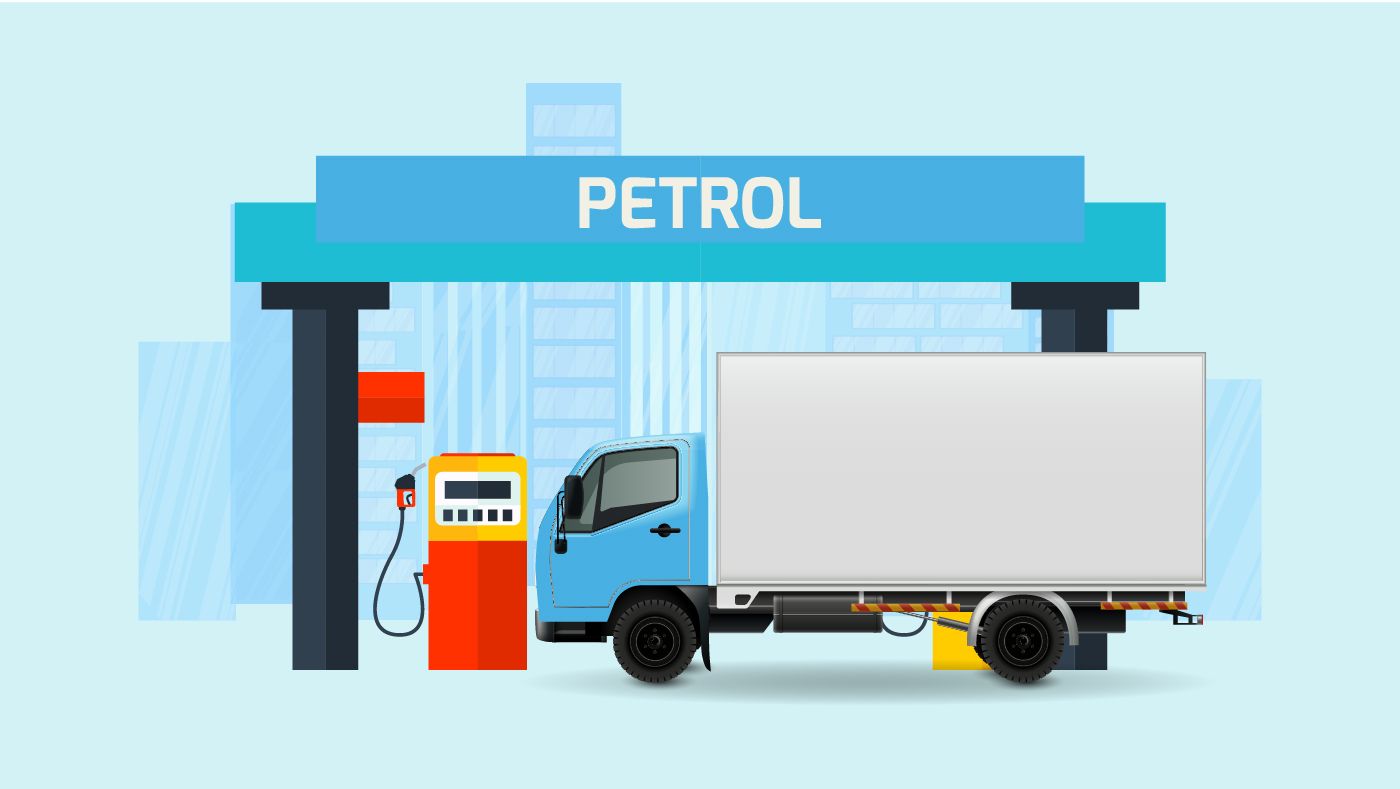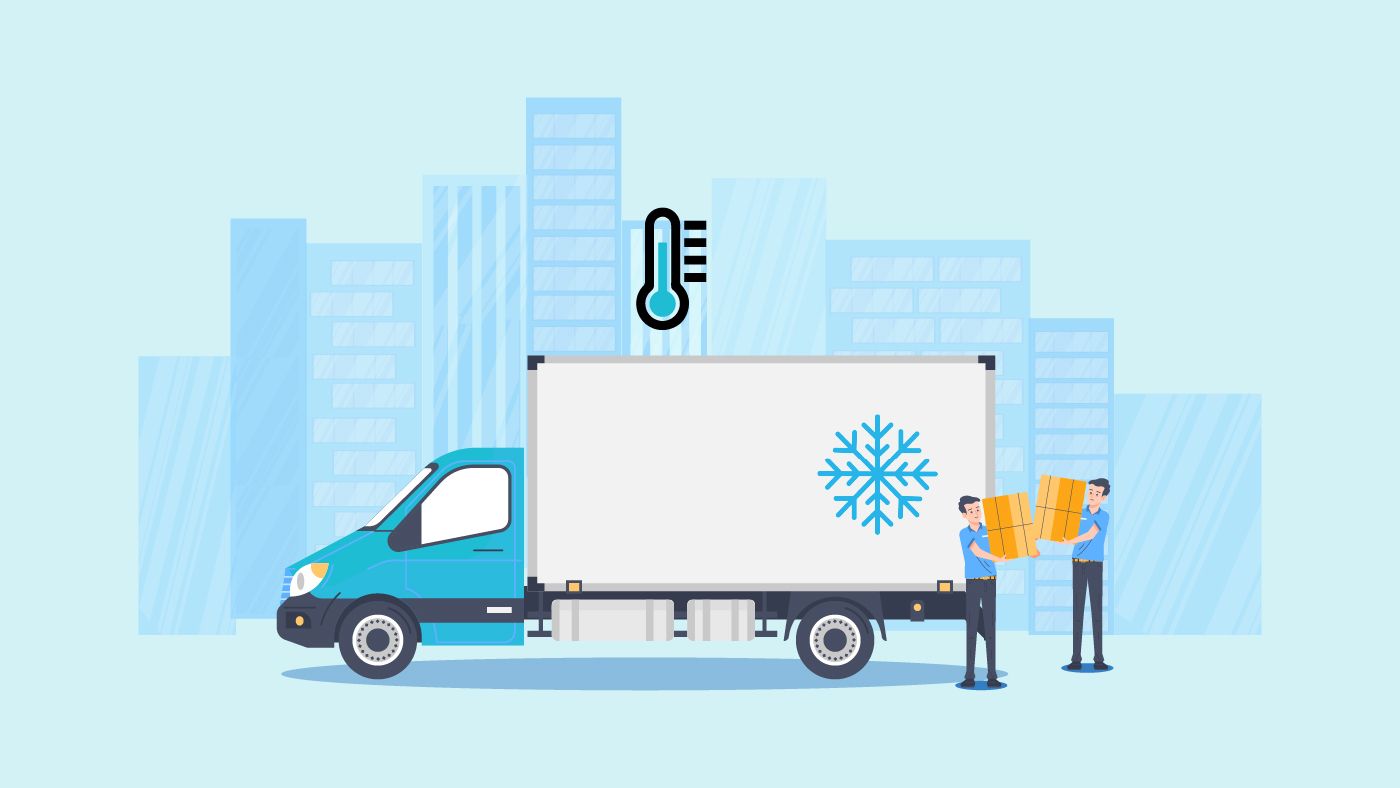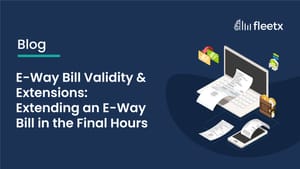
In this article, we talk about some of the best practices businesses and industries can adopt to optimise their cost of operations by improving their fleet fuel efficiency, as fuel costs make up about 40-60% of India's total cost of transportation.
The recent fuel price hike in India has us back on our toes again. Since March 22, there have been nine fuel price hikes, leading to the price of diesel crossing the Rs 100 mark for the first time in India. Although Russia-Ukraine has led to the sharp rise, fuel prices were also rising due to the recovery in demand as countries emerged from the coronavirus pandemic.
What is fleet fuel efficiency?
In simple words, fuel efficiency can be understood as a measure of distance it can cover with a specific fuel volume. The Indian context is the mileage a vehicle offers, represented by kilometres per litre of fuel.
Why does fleet fuel efficiency matter?
On average, trucks in India offer a fuel efficiency of between 1-6 km per litre of fuel. Several factors, such as road condition, vehicle maintenance, truckload, driving condition, etc., are responsible for the varying fuel efficiency of Indian trucks. Fuel costs make up anywhere between 40-60% of the total cost of operation for businesses and transporters. Therefore, Fleet fuel efficiency is crucial for business since even a marginal improvement or deterioration can make a big difference in the cost of operation, particularly for large truck fleet operators.
Key causes & metrics to track fleet fuel efficiency
Before we talk about improving fleet fuel efficiency, we first need to know the right metrics that affect fuel efficiency. Some of the critical metrics for fleet fuel efficiency are as follows:
1. Vehicle Maintenance
Maintenance is one of the most overlooked factors affecting a vehicle's performance, affecting fuel consumption. Transportation in India leads to commercial trucks being subjected to immense wear and tear. As a result, the engine and other parts like the tyre wear down and reduce the vehicle's performance. Expand that for the entire fleet, and we have a whole fleet of trucks with higher than usual fleet consumption. Thus, maintaining the fleet plays a crucial role in fleet fuel efficiency.
2. Route Planning & Navigation
Route planning is crucial in transportation before a truck loaded with goods starts its trip. Fleet managers aim to choose the shortest and most efficient route for the truck to follow; however, that might not always be the best as traffic and road construction can create obstructions that lead to rerouting. In addition, the lack of GPS tracking systems or navigation systems in most transporters can lead to trucks taking longer routes, thus resulting in poor fleet fuel efficiency.
3. Overloading cargo
The need to maximise vehicle utilisation leads to trucks being overloaded by businesses and transporters as the cost of transportation is mainly calculated on a per kilometre basis. Trucks carrying cargo more than their Full-Truck Load capacity cause higher fuel consumption and lead to poor fuel efficiency and make the truck prone to accidents.
4. Driver Behaviour
Another critical factor that affects fuel efficiency is the driver behind the wheels. Engine idling, rash driving, hard accelerating, or braking can cause the truck to guzzle more fuel than usual. However, due to any lack of driver behaviour monitoring tool, these cases often go unnoticed by fleet managers until it results in either vehicle breakdown, accidents, or lead to other unfortunate circumstances.
5. Fuel theft
Fuel theft is one of the most unfortunate and common problems in India's logistics & transport industry. For example, trucks fall prey to fuel thefts during their trips when trucks are parked during stops. In addition, unwanted stops made by drivers and syphoning fuel by them is also a recurring problem that leads to a decrease in fleet fuel efficiency of trucks if not addressed.
Practices to adopt to improve fleet fuel efficiency
The previous section discussed the most common causes and metrics for fleet fuel efficiency. This section looks at each of the causes mentioned earlier and talks about how businesses and transporters tackle them and improve fleet fuel efficiency.
1. Ensure timely vehicle maintenance with a fleet maintenance system
For your fleet to function efficiently, vehicles need their health monitoring and go through timely maintenance. In particular, for large fleets considering their fleet size, which runs in 100s, it becomes difficult to schedule or keep track of each vehicle's maintenance. Businesses can opt for a Fleet maintenance system that can help them with scheduling, setting up reminders employing usage-based maintenance reducing downtime, accessing vehicle diagnostics, and much more, reducing the risk of expensive vehicle breakdowns and saving costs. Additionally, Trucks can be integrated with Fuel Management Systems, which will allow businesses to manage and track fuel consumption and detect performance-related problems early. Ergo, improving fleet fuel efficiency for your business.
2. Integrating smart route planning & GPS tracking software with the fleet operations
Route planning software for transport operations can significantly help businesses cut travel time by scheduling the most efficient route for every trip your business requires. It also uses stored trip data to provide insights to help fleet managers plan routes better. Moreover, the addition of a GPS tracking system can further improve real-time navigation and rerouting to save time and fuel costs. It also offers live ETAs functions and vehicle tracking, among others that can help businesses reduce costs and improve the overall fleet fuel efficiency by always planning & navigating through the most efficient route.
3. Avoiding the practice of overloading
Businesses should avoid overloading trucks at all costs. Overloading is done to maximise the utility of a truck or trip. It eventually depreciates fleet fuel efficiency as it puts more strain on the engine, which reduces the mileage the truck offers. In addition to that, overloading also increases the wear and tear of the vehicle, making it more prone to accidents and negatively impacting safety. It is penalised under the traffic laws in the country as well!
4. Monitoring driver performance and training
Using software that offers Driving Behaviour & Safety analytics can alert fleet managers to the issues of rash driving, track behaviour & performance of drivers, incentivising safe & efficient driving, and optimise driving training & coaching, among others. As a result, more efficient and safe driving will reduce the risk of accidents and maximise fleet fuel efficiency at the same time.
5. Fuel Management system to maximise fuel efficiency and curb fuel theft
Businesses can integrate a Fuel Management System with their fleet to improve fuel management and get alerted in case of rapid fuel drain or higher than usual fuel consumption. Thus, fleet managers are alerted to rapid fuel drain in case of fuel theft and detect early maintenance issues, leading to higher than usual fuel consumption.
Conclusion
To conclude, it is now crucial for businesses to integrate technology with their transport operations to improve efficiency and transparency in their operations. Businesses and transporters can follow this guide to implement systematic changes in their operations to maximise their fleet fuel efficiency and reduce the cost of operations. Even marginal improvement in fleet performance will negatively impact fleet fuel efficiency and make operations better
What is fuel efficiency?
Fuel efficiency is the capacity of an engine, especially that of a vehicle, to obtain energy from fuel.
How is fuel efficiency measured?
The fuel efficiency of a vehicle is expressed in miles per gallon (mpg) or in litres per 100 kilometres (km/l).





